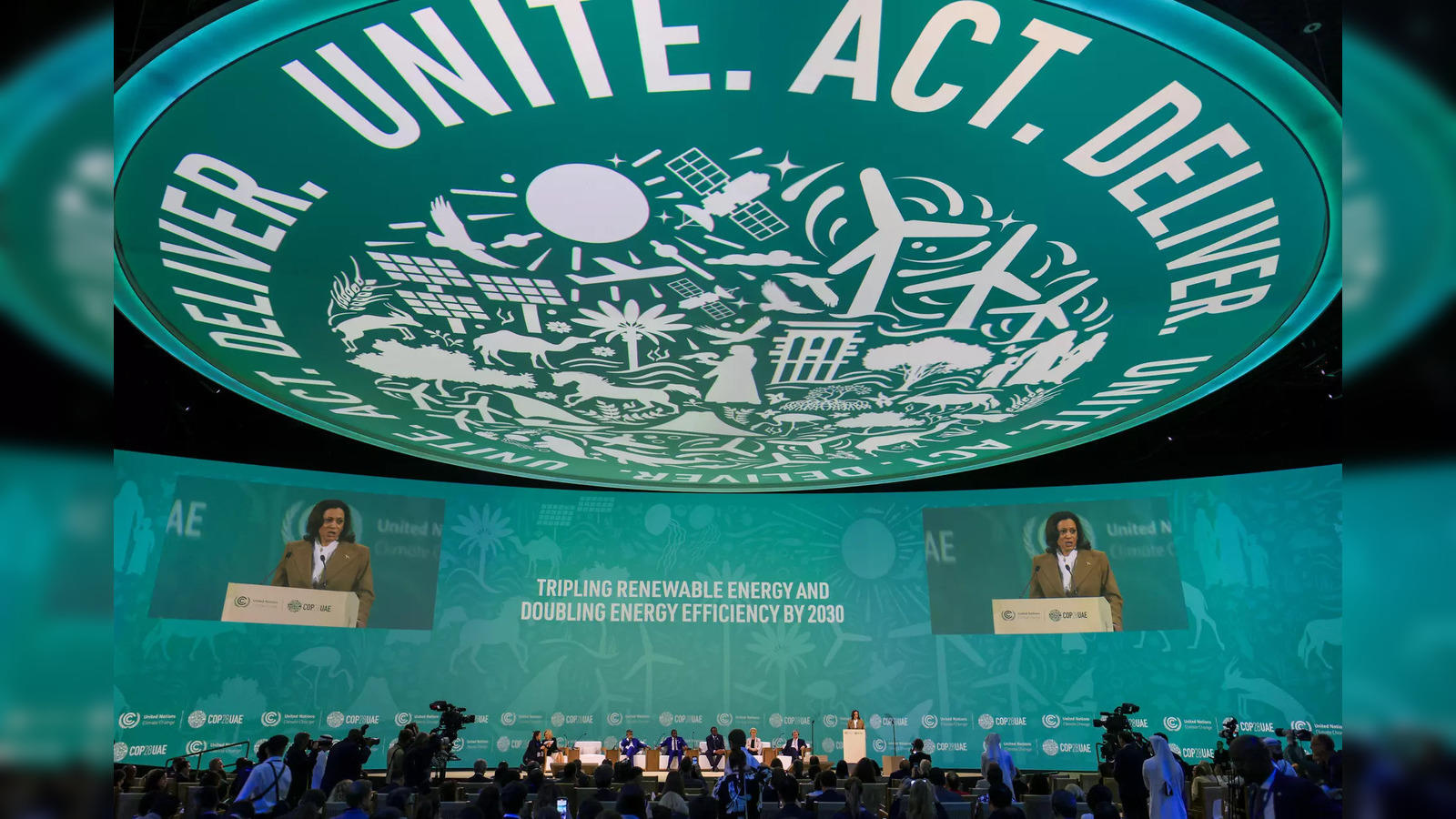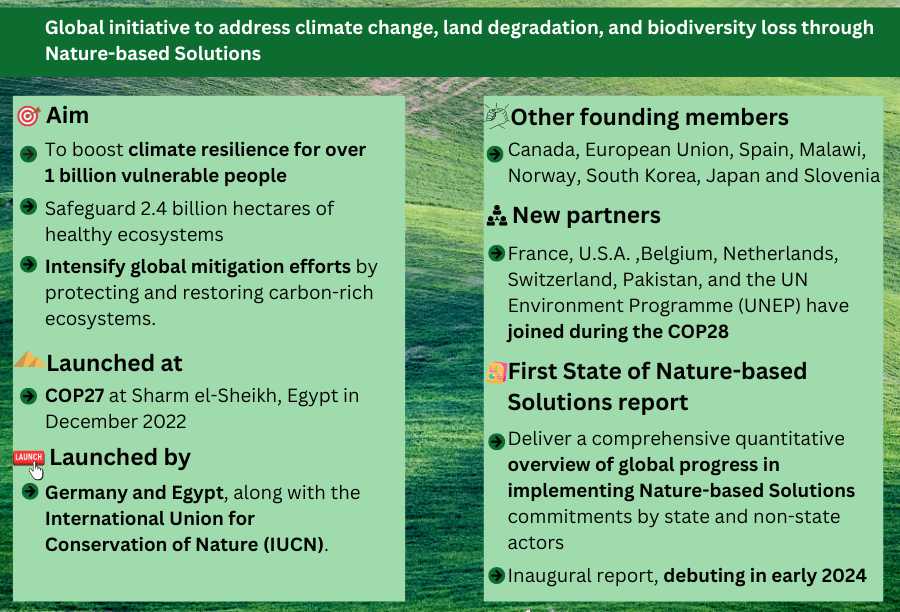Table of contents
As a UPSC aspirant, staying on top of environmental issues is crucial. But with international agreements and conventions constantly evolving, navigating this complex landscape can be daunting.
Fear not! This series will equip you with the knowledge of the most important environment conventions and their outcomes that frequently appear in UPSC Prelims.
Global Green Credit Initiative
WHY IMPORTANT?
- Launched by India, the initiative is also called Global Platform for Nature’s Ecological Transformation and it incentivizes voluntary environmental actions for water conservation and afforestation.
- Environmentally sustainable actions will result in green credits, which can be traded on domestic market platforms.
- The Indian Council of Forestry Research and Education is the administrator of the programme.
Global Renewables and Energy Efficiency Pledge

WHY IMPORTANT?
- It aims to triple the world’s green energy capacity to 11,000 GW by 2030 and reduce the reliance on fossil fuels.
- The pledge calls for doubling the global average annual rate of energy efficiency from around 2% to over 4% every year until 2030.
- India and China are not a part of it as it calls for phasing down of coal and stopping investments in new coal-fired power plants.
- It is not legally binding and also not a part of the official COP28 calendar.
The Global Cooling Pledge
WHY IMPORTANT?
- It is a joint initiative of the United Arab Emirates and the UNEP-led ‘Cool Coalition’, becoming the world's first collective effort on energy emissions from the cooling sector.
- Passive cooling strategies like natural shading, ventilation, insulation and reflective surfaces are promoted along with higher energy efficiency standards and a phase-down of hydrofluorocarbon refrigerants.
- The commitment is to reduce cooling emissions by around 3.8 billion tons of CO2 equivalent and by at least 68% by 2050 in all countries.
- India is not a signatory.
First Movers’ Coalition

WHY IMPORTANT?
- India joined First Movers Coalition, which is a a public-private partnership initiative launched by the USA and the World Economic Forum at COP26.
- Objective is to decarbonise heavy industry and transport sectors which contribute 30 percent to global emissions.
- Two new targets, carbon dioxide and aluminum, were also added apart from already existing sectors like aviation, shipping, steel and trucking.
We can't clear UPSC for you.
But with our personalised mentor support, you'll be ready to do it yourself.
Global Greenhouse Gas Watch
WHY IMPORTANT?
- The initiative by the World Meteorological Organisation is for monitoring of greenhouse gasses.
- Activities include analyzing long term climate, predicting the weather, greenhouse gas monitoring and research under Global Atmosphere Watch.
- It will consist of four components like-
- Comprehensive satellite-based observations of CO2, methane, and nitrous oxide concentrations.
- Prior estimates of the GHG emissions.
- Global high-resolution Earth system models.
- Data assimilation systems for higher accuracy.
Major Economies Forum on Energy and Climate
WHY IMPORTANT?
- Its main aim is to facilitate dialogue among major emitting developed and developing countries for efforts against climate change.
- It was launched by the US in 2009 under President Barack Obama and India is a part of it along with 19 other major economies.
- Targets include reducing deforestation to net zero, launching a Methane Finance Sprint to cut methane emissions, ‘Credible Pathways to 1.5°C’ through Decarbonizing Energy and accelerating hydrofluorocarbon phasedown under Kigali amendment.
DiCRA by UNDP and NABARD
Data in Climate Resilient Agriculture (DiCRA)
WHY IMPORTANT?
- The aim is to improve the lives of smallholder farmers by open-source data-driven agricultural innovation.
- Data in Climate Resilient Agriculture or DiCRA is a digital initiative by UNDP which offers open access to geospatial datasets for climate-resilient agriculture practices.
- This collaboration will further support livelihoods, sustainable agricultural practices and reduce vulnerability of small farm holders.
ENACT
Enhancing Nature based Solutions for an Accelerated Climate Transformation (ENACT)

WHY IMPORTANT?
- ENACT was launched by Egypt and Germany in collaboration with the International Union for Conservation of Nature (IUCN) at the COP27 at Sharm el-Sheikh, Egypt.
- The aim is to coordinate global efforts to address land degradation, biodiversity loss and climate change through Nature-based Solutions.
- This will help in protection of vulnerable people from climate change and secure approx 2.4 billion hectares of healthy natural and sustainable ecosystems.
